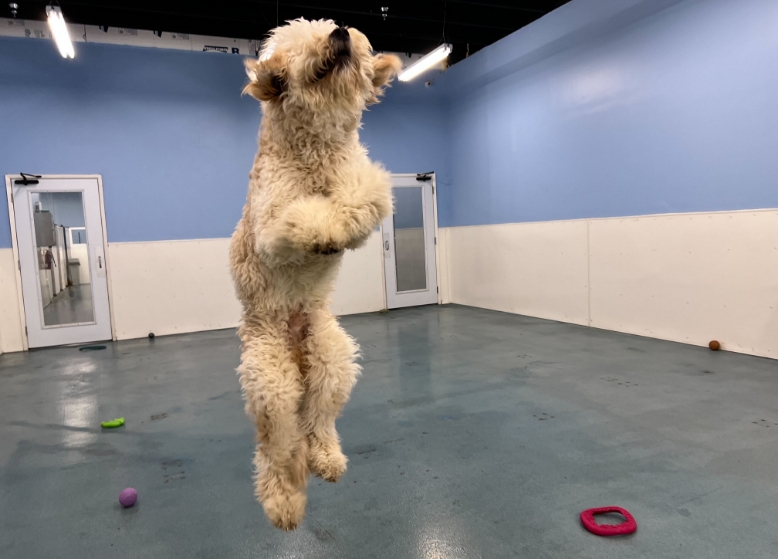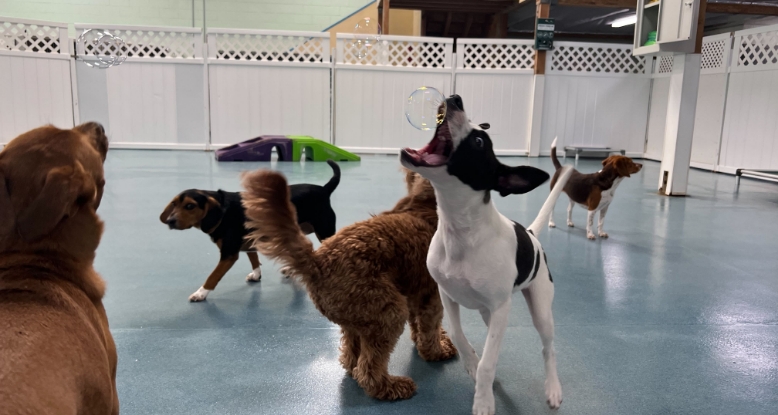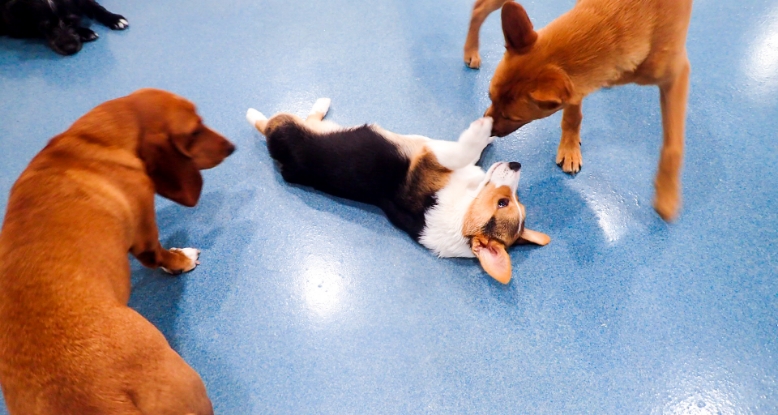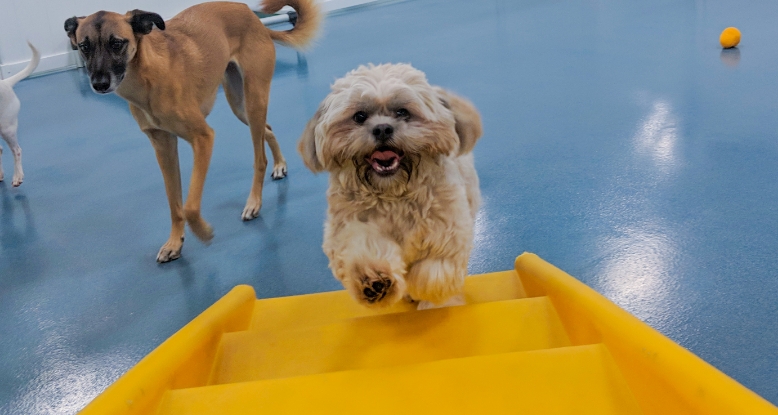Socialization: The Key to a Confident and Well-Behaved Dog

Socialization is a crucial aspect of a dog’s development and plays a big role in shaping its behavior and personality. Proper socialization can help dogs become well-adjusted and confident, leading to better health.
In this article, we’ll take a closer look at the benefits of socialization for both dogs and their owners, as well as various techniques and challenges that arise during socialization.
I. What Is Socialization?
Socialization is essential to a dog’s development as it affects its behavior and temperament. Exposing dogs to various stimuli, such as people, animals, and environments, teaches them how to behave in different situations and can greatly reduce anxiety.
Socialization aims to teach dogs how to interact with the world around them and help them build confidence. It teaches them how to communicate with other dogs and people effectively. They develop problem-solving skills, learn to cope with stress, and become less fearful and aggressive.
Critical Periods for Socialization in a Dog’s Life
The critical periods for socialization are the first three months of a dog’s life, followed by the second socialization period from three to six months of age. These periods represent a big window of opportunity for dogs to experience new things. During these periods, dogs are most receptive to learning and are more likely to form positive associations with new experiences.
A daycare enrichment program is an excellent way to introduce young puppies to new experiences and socialize them with other dogs. An enrichment program provides a controlled environment with a small group of dogs, where puppies interact with other dogs under the supervision of a trained professional.
Find out why countless pet owners trust us with their canine companions!
II. Benefits of Socialization

Socializing your dog has numerous benefits for both the dog and the owner. Here are some of the key benefits:
- Increased Confidence: Well-socialized dogs have less fear and anxiety and are more adaptable to new environments.
- Better Behavior: Socializing your dog improves its behavior. They show less aggression towards people or other dogs, which means less chances of dangerous behaviors like excessive barking.
- Improved Health: Socializing your dog improves overall health by reducing stress levels and boosting its immune system. They tend to be less prone to anxiety-related health problems like gastrointestinal issues and skin irritations.
- Increased Safety: A well-socialized dog is less likely to become aggressive towards people or other dogs, reducing the risk of bites or other injuries. A dog used to being around people and other dogs is less likely to run away or get lost, reducing the risk of accidents.
- Enjoyable Outings: A well-socialized dog is usually well-behaved in public settings like parks, cafes, and shops, making things more enjoyable for the dog and the owner.
Remember that socialization is an ongoing process, not a one-time event. Continuing to expose your dog to new people, environments, and experiences will help maintain its socialization skills.
Interested in knowing how dog daycare works? Learn more here.
III. Socialization Techniques

Socialization requires time, patience, and effort. Here are some techniques to help socialize your dog effectively and safely.
Different Methods of Socialization
One effective method of socialization is positive reinforcement training. This involves rewarding your dog for good behavior, such as sitting calmly when meeting new people or dogs. Rewards include treats, praise, and playtime.
Controlled exposure is another technique that can be used to socialize your dog. This involves exposing your dog to new environments in a controlled manner, gradually increasing the level of exposure over time. Your dog will be more comfortable and confident in new situations without becoming overwhelmed.
Supervised socialization is also vital for effective socialization. Always supervise your dog during interactions with other dogs and people to ensure their safety. Choose appropriate playmates, considering their size, age, and temperament. Supervision lets you intervene if needed and redirect negative behavior to positive behavior.
Socializing Your Dog with People Effectively
When socializing with people, start with familiar people and gradually introduce them to new people. Encourage gentle interactions and reward positive behavior.
Introducing your dog to new environments should also be done in a controlled manner. Ideally, start with quiet places and move on to busier areas.
Let the images of our furry friends’ smiling faces speak for themselves!

IV. Common Socialization Challenges
It’s not unusual for dogs to feel fear or show aggressive behaviors when placed in new situations. As a responsible dog owner, it’s your job to be aware of these challenges and know how to address them.
The Main Challenges of Socialization
One common challenge is fear. Fear can manifest in different ways, including trembling, hiding, growling, or biting. Be patient with your dog and understand they may need time to adjust to new situations. Don’t force your dog into situations that make them uncomfortable.
Another common challenge is aggression. Dogs may exhibit aggressive behaviors when they feel threatened or uncomfortable, which is dangerous for them and the people or animals around them. It’s crucial to address aggressive behaviors early on and seek professional help if necessary. A certified dog trainer or behaviorist can work with you and your dog to address these issues and help your dog be less reactive in social situations.
In some cases, dogs may have had negative experiences in the past that make socialization challenging. For example, a dog not socialized as a puppy may struggle with adulthood socialization. Similarly, dogs rescued from abusive situations will need extra patience from you.
Every dog is different, and there is no one-size-fits-all approach to socialization. However, with patience, consistency, and positive reinforcement training, most dogs learn to overcome their socialization challenges and become confident companions.
V. The Importance of Professional Dog Daycare
Professional dog daycare is a great option for pet owners who want to ensure their dogs receive proper socialization. A good daycare will provide a safe environment where your dog can learn how to interact with other dogs and people.
Benefits of Daycare Services for Busy Pet Owners
Professional dog daycare is typically staffed by experienced professionals who can facilitate positive interactions between dogs. In a daycare setting, dogs are exposed to other dogs, people, and environments. This helps them become comfortable in new situations.
Another benefit is the convenience it offers to busy pet owners. Daycare services allow pet owners to leave their dogs in a supervised environment while they go to work or run errands. This is especially beneficial for dogs with separation anxiety or destructive behavior when left alone for a long time.
In addition to providing convenience, professional dog daycare offers other benefits such as regular exercise, mental stimulation, and a structured routine. Many daycares offer playtime, walks, and other activities to keep dogs engaged throughout the day. This helps prevent boredom and destructive behavior and also promotes overall health.
When choosing a dog daycare facility, do your research and choose one that prioritizes safety and cleanliness. Look for a daycare that requires all dogs to be up-to-date on vaccinations and has trained staff members experienced in dog behavior. It’s also good to ask for recommendations from other pet owners or your veterinarian.
Bottom Line
Moreover, socialization is crucial for a dog’s overall development, behavior, and health. Proper socialization techniques help your dog become more confident and adaptable in different environments. As a dog owner, taking an active role in socializing your furry friend and seeking professional help if needed is essential.
At 24 Hour Dog Daycare, we prioritize the well-being of dogs in our care, with spacious play areas and private suites. With locations in San Diego and North County, our trained staff is attentive to every dog’s body language and signals, ensuring a safe environment. Invest the time and effort in socializing your dog, and you can enjoy a lifelong, rewarding relationship with your furry friend.
Make a reservation with us today and give your dog the best daycare experience they’ve ever had.

FAQs on Dog Socialization
1. What are some common socialization challenges that dog owners often face?
Common socialization challenges that dog owners face include fear and aggression toward new people, dogs, or environments. These challenges can be addressed through positive reinforcement training, controlled exposure, and seeking professional help.
2. How can professional dog daycare aid in socialization?
Professional dog daycare provides a controlled environment for dogs to learn social skills. This is most helpful for dogs without the opportunity to socialize.
3. What is the critical period for socialization in a dog’s life?
The critical period for socialization in a dog’s life is between 3 and 14 weeks of age. Puppies are most receptive to new experiences and can learn essential social skills more quickly than later in life.
4. How can socialization benefit owners as well as their dogs?
Socialization benefits owners by increasing the safety of their dogs in public and reducing the risk of behavioral issues. A well-socialized dog is likelier to be well-behaved, making it easier for owners to enjoy outings.


